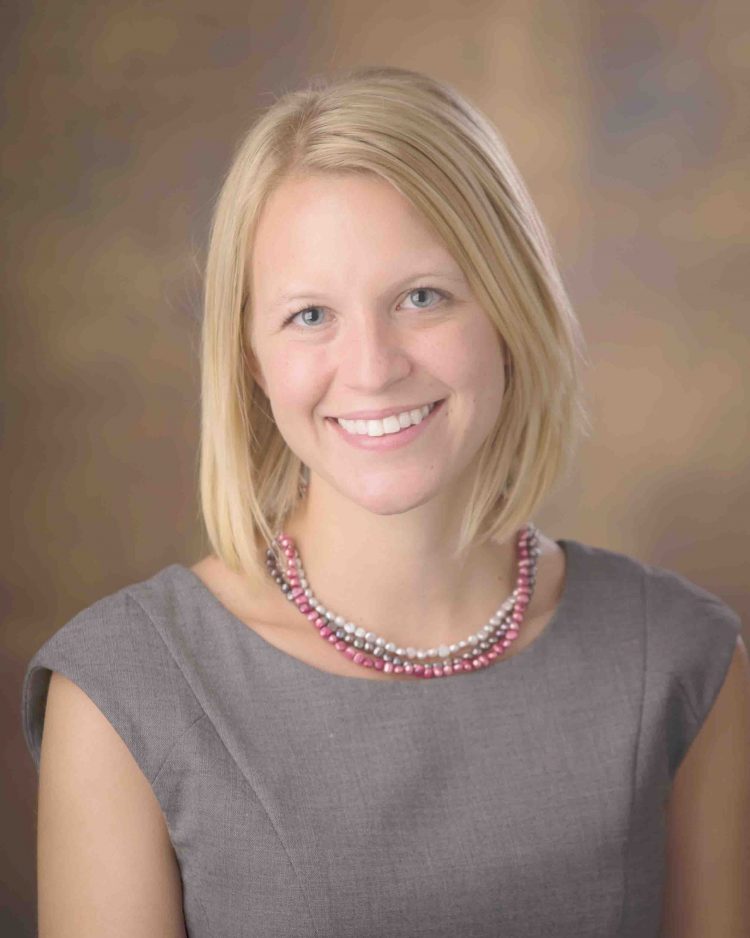Meet Jill Quinn, University of Utah Professional MBA Class of 2017. Read her recent interview with us where she talks about how she discovered her passion for organizational development, how the network of the program actually helped her in her day-to-day work responsibilities, and how she has passed the most challenging test of her MBA experience so far – morning sickness.
Where do you work right now?
I am in the research and healthcare administration field. Currently, I am the Division Manager for the Genetic Epidemiology Division in the Department of Internal Medicine at the University of Utah.
What made you want to pursue an MBA?
I was given an amazing opportunity to participate in restructuring our research administration enterprise. This experience brought to light my passion for organizational development; I learned that I thoroughly enjoyed developing new organizational structures, policies and procedures, and being a part of strategic goal setting. While I felt I had finally found my place in the business world, I realized I didn’t quite have the tools I needed to pursue this passion. To overcome this hurdle, I decided to pursue an MBA in hopes of gaining the knowledge, tools and understanding I needed.
Why did you choose Utah’s Professional MBA program?
First, and most importantly, the PMBA program allowed me to continue working full-time while I earned my MBA. I was interested in continuing along my career path, uninterrupted, while gaining skills and perspectives to take on challenges of more senior management positions. The University of Utah is ranked among the top public research universities in the world with specific emphasis in technology commercialization, medical research, and spin-off company creation. The combination of an exceptional business education and the institutional environment at the University of Utah would be instrumental in accelerating my professional goals. Additionally, the program offered numerous courses that would put me at a competitive advantage in my field of interest including data warehousing, venture finance, marketing for health professionals, and global strategic management.
What’s been the best part of your experience so far?
Networking with my peers has been the best part of my experience, hands down. We have been able to swap ideas, discuss current problems and solutions, and share best practices that can be applied immediately in our current jobs. I’ve even had one classmate come to my office and help me design and implement efficient reports for project and financial management. These reports eliminated the need for tedious data entry and included a visual dashboard which quickly informed me of project status. This is just one example of many where my peers have directly improved my own work processes.
Most challenging part of your experience?
Two words: morning sickness. While my husband and I were elated to discover I was pregnant during my second semester of the program, I was not quite prepared for the unpleasant pregnancy symptoms. It would be an understatement to say that the first four months of my pregnancy were a challenge – I was attending class, studying, and completing assignments under the influence of constant nausea. Luckily, my peers, professors, and the PMBA staff were extremely supportive. If I had to leave class due to sickness, my professors took the time to meet with me outside of class. They prepared practice problems and provided additional readings that would help me better understand concepts. My classmates took amazing notes and became the best tutors I could have asked for. The PMBA staff helped me design a class schedule that won’t require me to take time off from the program when my baby arrives. I was a bit worried about starting a family while earning my PMBA, but thankfully, the program is filled with amazing peers, professors and staff!
How do you balance work, school, family, etc.?
My secret to balancing it all is my supportive husband and an obsession with planning/time management.
Best piece of advice for future students?
Classes are five or 10 weeks long, so they pass by quickly! The best advice I can give is to soak it all in during each session, and apply what you’re learning in class to your professional life. If you’re assigned readings in class, put the concepts into practice. If you learn a cool team-building activity, take it back to the office and do it with your coworkers. I’ve come to the conclusion that the more I apply what I’m learning in class, the more I understand the concepts, and the better equipped I am to improve myself professionally.

